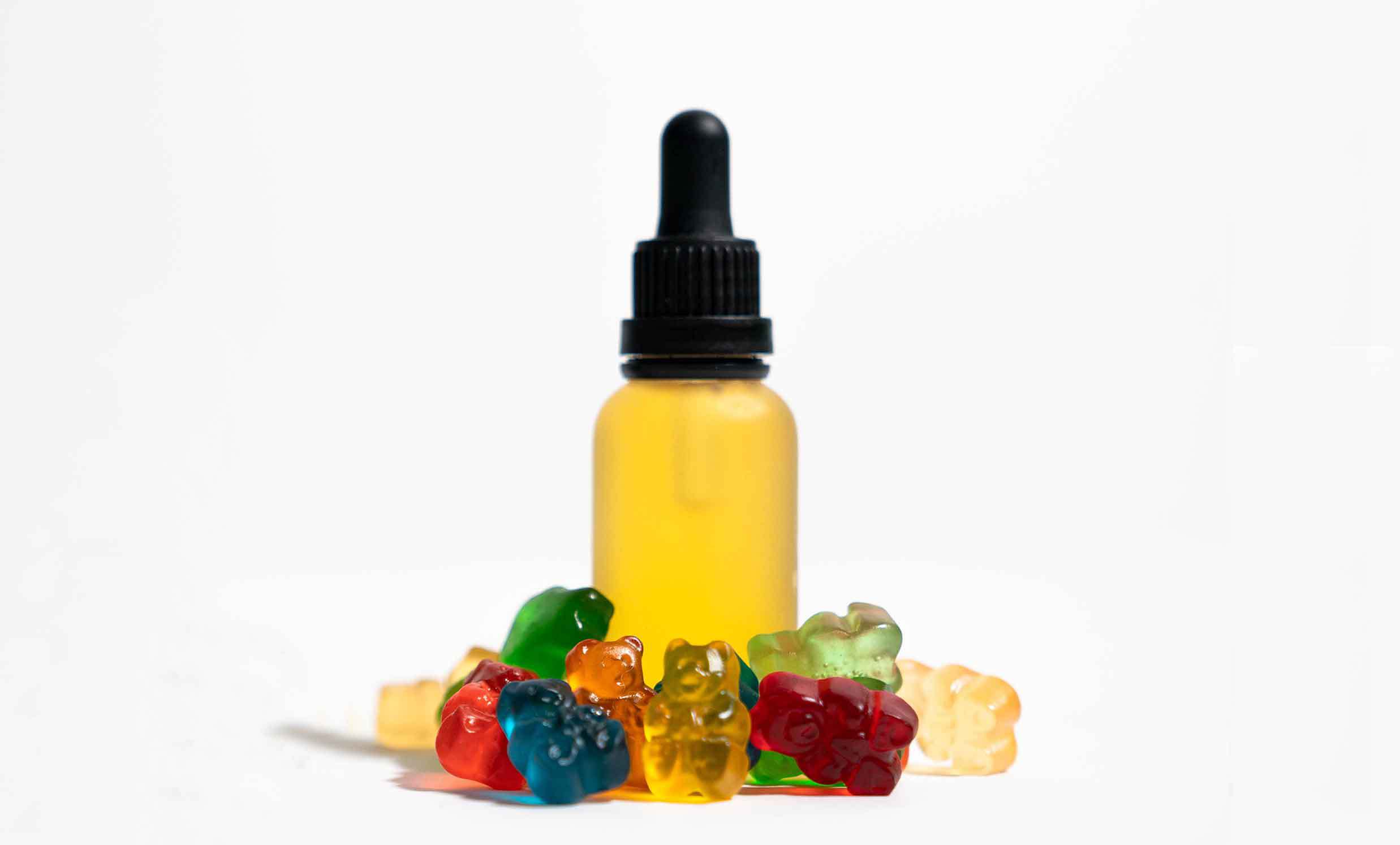The most talked about product trend on the cannabis scene today is undoubtedly Delta-8 THC & Delta-10 THC. They’re touted as naturally occurring compounds found in the cannabis Sativa plant – both hemp and marijuana – said to have various therapeutic benefits, including pain relief. But the healing powers are not why these isomers are the subject of much debate, curiosity, and media coverage. Despite interacting differently with the CBD1 receptor than their cousin, Delta-9 THC — the cannabinoid known for getting people high – these compounds, which are synthesized from legal hemp, have the potency to get users stoned. Some describe the high from these compounds as more relaxing than full-strength cannabis, milder and with less paranoia.
Thanks to the passing of the 2018 Farm Bill, which legalized industrial hemp production in the United States for the first time since 1937, Delta-8 and 10 sales are thriving. New Frontier Data estimates that around $10 million worth of these products (edibles, vape cartridges, beverages) were sold in 2020. It is now considered the fastest-growing segment of the hemp market – despite questions over legality.
However, not all Delta-8 and Delta-10 products are created equal. Sadly, a slew of fly-by-night companies across the country are selling untested products to the unwitting consumer. Who are these culprits? Well, that’s a tough call. Although the federal government continues to apply pressure to the industry, going as far as banning specific compositions to weed out the bad actors, these companies are simply applying minor tweaks to the molecular structure of their products to continue profiting within the grey boundaries of the law. If this situation sounds familiar, it’s because it is – very familiar. Unscrupulous companies have leaned on these shady recipe changes for years to sell synthetic marijuana, known as K2 and Spice. It’s how these products, despite constant retaliation from federal drug and health agencies, remain on many retail shelves.
It’s important to point out, however, that Delta-8 and 10, when produced by reputable, licensed, cannabis firms, those which adhere to higher standards throughout the manufacturing process, is safe for the consumer. Only when these products are made cheaply and with no attention to quality do they pose a threat to public health and safety. Distinguishing the difference between the safe and sketchy is impossible with the naked eye. Yet, it’s a crucial step. Untested Delta-8 and Delta-10 products can be downright horrifying. Some have been shown to contain heavy metal lead and exceed restrictions on copper, chromium, and nickel. Pesticides are also common, not to mention other dangerous toxins not fit for human consumption.
According to the U.S. Food and Drug Administration (FDA), there have been reports of Delta-8 products causing adverse reactions, including vomiting, hallucinations, trouble standing, and loss of consciousness. The federal agency asserts that these harmful effects are due to hazardous household chemicals that are added during the manufacturing process. Although cases of ill are, by all accounts, rare – around 650 poison control calls from 2018-2021 – the FDA urges consumers to err on the side of caution. Why? These products have not been evaluated or approved by the FDA, so the agency considers every brand to be a potential threat to public safety.
“Some manufacturers may use potentially unsafe household chemicals to make delta-8 THC through this chemical synthesis process. Additional chemicals may be used to change the color of the final product,” the agency said. “The final delta-8 THC product may have potentially harmful by-products (contaminants) due to the chemicals used in the process, and there is uncertainty with respect to other potential contaminants that may be present or produced depending on the composition of the starting raw material. If consumed or inhaled, these chemicals, including some used to make (synthesize) delta-8 THC and the unknown by-products created during synthesis, can be harmful.”
In many ways, the situation with Delta-8 and 10 is like the CBD craze of 2019. Although this non-intoxicating compound is highly revered for its medicinal properties – capable of treating various medical conditions – and people flocked to it in droves to measure its effectiveness, there were some unfortunate cases where users got sick. Fake CBD oil more closely resembling synthetic marijuana started showing up in convenience stores and head shops around the country, poisoning dozens of consumers. The Centers for Disease Control and Prevention eventually issued a directive calling on states to impose standards on these products.
Some states have already started reigning in Delta-8 and Delta-10. As of this post, 18 states have regulated, restricted, or banned Delta-8. At least four others have it under review. In Colorado, where marijuana is fully legal, officials have banned these products from being sold in dispensaries because the chemical modifications required to manufacture them compromise the definition of industrial hemp. In Kentucky, a prohibition state, lawmakers argue that Delta-8 isn’t naturally extracted from hemp, but chemically generated. Governments are seemingly having a difficult time navigating the issue, which is likely to become more convoluted before it’s said and done.
What the FDA or any other federal or state agency doesn’t properly articulate about Delta-8 and Delta-10 products is there are considerable differences between those that are produced in licensed, regulated markets and areas of prohibition. Cannabis companies who care about their products and their consumers take extra measures to ensure that what hits the shelf is of the best quality and purity. Those making synthetics do not. Yet, sellers aren’t equipped to identify what is good and what’s potentially harmful. While governmental controls try to make it more difficult for fly-by-night companies to sell synthetics, the effort seems futile. Product quality and safety issues are becoming increasingly problematic. “Overall, our investigation confirmed that Delta-8 products are mostly offered by inexperienced companies looking to make a quick buck,” reads a recent report from Leafreport.
The good news is that there is an effective method for combatting these shady practices and product discrepancies. Testing… Testing… Testing. That’s right, sellers (retailers, distributors, processors, manufacturers) must embrace laboratory testing of all Deta-8 and Delta-10 products, just like any other legal cannabis product. They must be tested for potency, the existence of microbial impurities, pesticides, and heavy metals. Otherwise, there is an increased health risk.
The first step to ensuring that these products are free of any plethora of dangerous toxins is that they be supported by accurate certificates of analysis (COAs). These documents, above all else, provide product transparency. They show that a third-party lab like Kaycha Labs has thoroughly examined the products, and they serve as confirmation that the contents agree with the packaging. In addition, COAs show whether the product contains the legal and appropriate level of Total THC (0.3 percent), as to prevent retailers from incurring any unwanted trouble from federal law enforcement. Due to the bizarre legality surrounding these products, the U.S. Drug Enforcement Administration can still bust companies and retailers who sell illegal products.
It’s important to know what you’re selling!
Of course, equally as important to testing products derived from industrial hemp is making sure the job is done by a reputable lab. Reports show that not only are untested Delta-8 and Delta-10 products polluting the market, so are phony COAs. In some cases, this documentation is being falsified to give retailers the illusion that a product is authentic and safe. But make no mistake about it, that isn’t always the case. While most of the industry does its best to operate ethically and adhere to the law, there are firms out there acting unscrupulously. Unfortunately, the honor system does not work. The players, all of them, must be held accountable. Companies must have complete transparency with respect to their products, and testing is the benchmark of the honorable.













